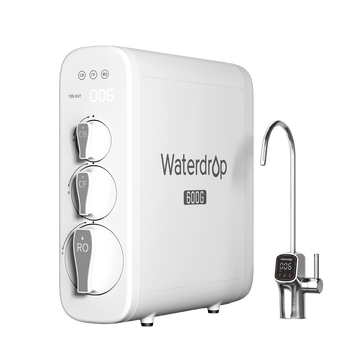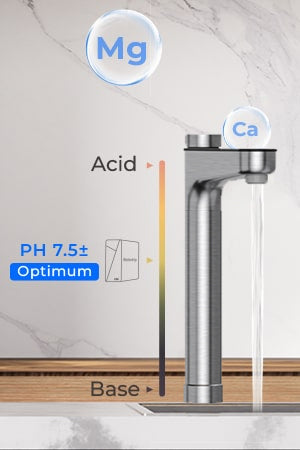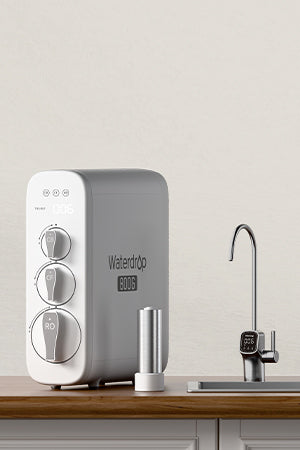Cold Water vs. Warm Water: Which One Is Better for Your Health?
Drinking Cold Water: The Benefits and Drawbacks
Drinking Warm Water: The Benefits and Drawbacks
Cold vs. Warm Water: Key Health Comparisons
European Habits Around Water Temperature
When to Choose Cold or Warm Water?
What About Room Temperature Water?
European Wellness Trends: Hot Water on the Rise
Which Is Better: Cold or Warm Water?
Why Water Temperature Matters?
- Digestion
- Metabolism
- Circulation
- Detoxification
- Hydration levels

Drinking Cold Water: The Benefits and Drawbacks
- Germany, where tap water is often chilled
- Scandinavia, where icy mountain streams inspire wellness routines
- Southern Europe during hot summer months
Benefits of Drinking Cold Water:
- Refreshes and Cools the Body: Perfect during heatwaves or after exercise; Helps regulate body temperature
- Boosts Alertness: Some people find cold water invigorating and mentally stimulating
- Aids Post-Workout Recovery: May reduce inflammation and support muscle recovery

Downsides of Cold Water:
- Can Slow Digestion: Drinking ice-cold water with meals may constrict blood vessels and hinder digestion
- Triggers Migraines or Sensitive Teeth: Especially problematic in colder climates or for sensitive individuals
- May Thicken Mucus : Some studies suggest cold water might exacerbate sinus or throat issues
Drinking Warm Water: The Benefits and Drawbacks
Benefits of Drinking Warm Water:
- Aids Digestion: Warm water stimulates the digestive tract and helps dissolve food more efficiently
- Supports Detoxification: Thought to help flush out toxins, especially when consumed first thing in the morning
- Promotes Relaxation: Calms the nervous system and may aid sleep when consumed in the evening
- Relieves Congestion: Ideal for colds and flu; often used with honey or herbs

Downsides of Warm Water:
- Less Refreshing: May not satisfy thirst quickly during warm weather
- Can Feel Unpleasant for Some: Not everyone enjoys the taste or sensation of warm water
- May Raise Body Temperature: Not ideal during heatwaves or after intense exercise
Cold vs. Warm Water: Key Health Comparisons

European Habits Around Water Temperature
North vs. South: A Climate Divide
The Influence of Cultural Wellness Trends
- Scandinavia: Cold water immersion and hydration are tied to spa culture and sports recovery.
- France and Italy: Herbal infusions, room-temperature mineral water, and warm detox drinks are popular.
- Germany and Austria: Many people use carbonated or chilled water for digestion, but warm herbal teas are also common for gut support.
When to Choose Cold or Warm Water?
Choose Cold Water If:
- You’re exercising or just finished a workout
- You’re feeling hot or flushed
- You need a quick energy boost
- You enjoy sparkling water (which is typically served cold)
Choose Warm Water If:
- You have digestive issues or acid reflux
- You’re starting your day (especially with lemon or apple cider vinegar)
- You’re fighting a cold or sore throat
- You’re winding down before bed

What About Room Temperature Water?
- Easier to digest
- Gentler on sensitive teeth
- Hydrating without over-stimulating
European Wellness Trends: Hot Water on the Rise
- Morning warm water routines
- Herbal water infusions (ginger, mint, fennel)
- “Detox waters” with warm lemon or apple cider vinegar
- Ayurvedic practices being adopted in cities like Berlin, Barcelona, and Copenhagen
Which Is Better: Cold or Warm Water?
- For digestion and detox : Warm water wins.
- For refreshment and recovery : Cold water takes the prize.
- For everyday hydration : Room temperature is a safe, balanced choice.
EXCEED EWG HEALTH GUIDELINES
30 Total Contaminants in Your Water
Water Provider
Fruitland Water Special Service DistrictPopulation Affected
120,000Water Source
Ground water





















































